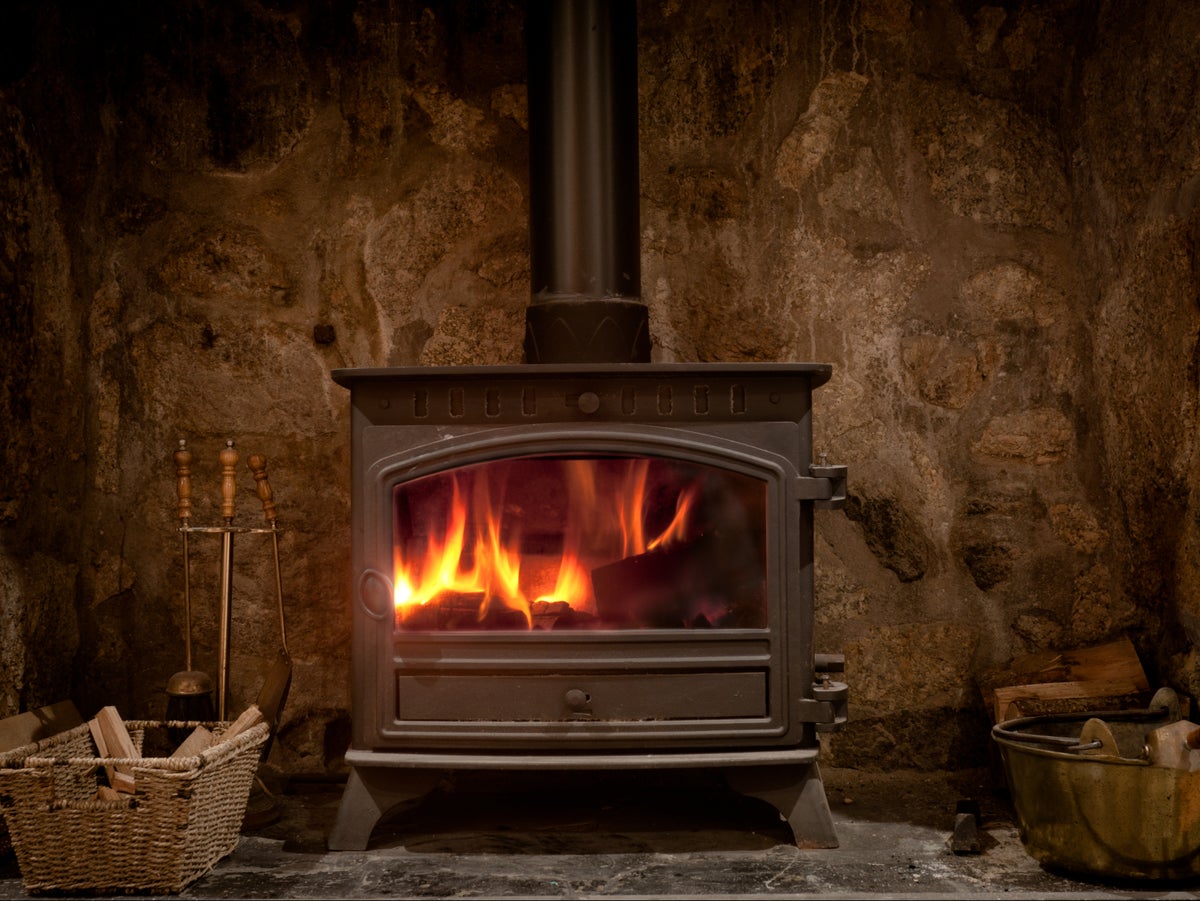
An estimated 1.5m British homes have traditional log burning stoves in their living rooms, with some households finding them a useful alternative to having the heating on this winter, especially when bills are so high.
Even after the freeze of Ofgem’s energy price cap at £2,500 in September, average domestic energy bills are double what they were last year, placing a huge strain on budgets at a time of double-digit inflation and wage stagnation.
Although such devices are initially expensive to install and require a steady supply of dry fuel, their popularity has only grown in recent years as a fashionable lifestyle accessory, often promoted by glossy magazines and interior design programmes, promising cosiness and greater ambience, with approximately 150,000 sold every year.
However, under the government’s new Environmental Improvement Plan 2023, announced by environment secretary Therese Coffey on 31 January, burners in designated “Smoke Control Areas” – most towns and cities – will now only be allowed to emit 3 grams (g) of smoke per hour, down from 5g, as part of a bid to reduce air pollution.
Anyone found to be in breach could now be liable for an on-the-spot fine of up to £300 and even face criminal prosecution if they refuse to cut back their chimney smoke.
The Department for Environment, Food and Rural Affairs (Defra) argues that log burners and coal fires are one of the largest sources of fine particulate matter (or PM.25) in our air, specks of soot that can enter the lungs and cause health problems, including lung cancer, heart damage, strokes and asthma.
The British Lung Foundation has previously called on politicians to do more to increase public awareness of the dangers of exposure to toxic air through a national advertising campaign.
Domestic fires and stoves account for 38 per cent of PM.25 in the atmosphere, according to the government, compared to 16 per cent from industry and 12 per cent from road transport, although the stove industry disputes those figures.
Defra’s new 262-page plan, outlining its strategy for “halting and then reversing the decline in nature”, makes clear that the government has no intention of banning log burners outright, with Ms Coffey saying she prefers “educating” people on their disadvantages and wants to “avoid fingerpointing”.
“We are not considering a ban on domestic burning in England,” the plan states.
“The UK government recognises that some households are reliant on solid fuel burning as a primary source for heating, hot water and cooking, with this in mind the government is not seeking to ban burning.”
“A ban on domestic outdoor burning (bonfires, barbecues, firepits etc.) would also be considered disproportionate.”
Andrea Lee, campaigns and policy manager for clean air at Client Earth, has, however, urged people living in urban areas to abandon their use, arguing that most people living in towns and cities have alternative means of heating their properties available that are less harmful to the atmosphere.
“There should be a phasing out of wood burning in urban areas,” she said.
The government moved last year to outlaw the sale of house coal and wet wood in England as part of a previous drive to reduce emissions, urging the public to pursue “cleaner alternative” fuels and threatening anyone found using them with a £1,000 penalty.
How enforceable the new rules are remains to be seen though, with councillor David Renard of the Local Government Association pointing that no new funding had been made available to local authorities to help them tackle the new domestic emissions rule.
“Councils are happy to take on these responsibilities, but we need funding to resource them properly,” he told The Guardian.
“Councils have very limited resources, with so much going on social care. Balancing these priorities is a real problem.”







